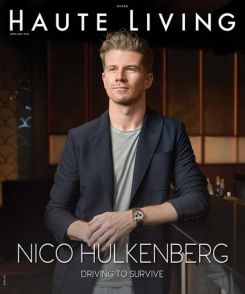The rapidly growing ban on cigarette smoking in public locations across the nation is one topic of conversation that tends to get heated quite quickly. Whether you’re for or against the ban of smoking in bars, restaurants, and clubs in New York City, some Manhattan smokers are living in a land where the ban doesn’t even really exist anymore. What’s going on?
According to a recent post in the New York Times, six years after New York City passed a law that banned smoking in bars and restaurants, some smokers seem to be slipping through the cracks and getting away with it outraging pro-ban advocates and people who were enjoying a smoke-free city.
It appears that a select few of high-end bars and lounges, many of them located in the meatpacking district and the Lower East Side, are allowing/not prohibiting patrons to smoke inside instead of forcing them to stand out on the curb to puff away in the cold, as the law requires. It seems to not only be an obvious new brazenness from individuals who light-up indoors, but also a classic case of looking the other way for these establishments who prefer to keep their socialite clientele happy.
While some places have been receiving smoking citations for the incidents, such as the Beatrice Inn, others appear to still be getting away with it, which begs the question; does anyone really respect the ban? According to the report, the typically celebrity-laden lounge Avenue has been included in the growing list of seemingly complacent locations when a patron “was on his way outside to smoke when a staff member told him not to bother.” When the guest asked a busboy where to smoke, he was told, “Oh, people just light up in here.” So he did.
The New York City health department says it is aware of what is going on and, according to the New York Times, citations for smoking in bars and restaurants went up “35 percent this summer to 306 citations compared with 227 for the summer of 2008.”
Elliot Marcus, an associate commissioner of the health department said that they know where the “trouble spots” are. “It’s these high-end places for people who think that rules don’t apply to them,” he said. To help with the situation, the department has apparently increased late-night smoking patrols and “undercover investigators roam the meatpacking district, the Lower East Side, and Astoria, Queens, in what Marcus called a cat-and-mouse game.”
Is it possible that, as with some bans in the past, this too will end as a result of strong resistance from a large group in the public? Eugene Remm, owner of Tenjune, believes so. His club in the meatpacking district has gained a reputation as a smoker-friendly spot although Remm says his staff always tells patrons to take the smoking outside. He says, “The problem is that they don’t always listen. You tell them to put it out and then 10 minutes later they light up again.” In December 2008 Tenjune received a citation for patrons’ smoking, but since then they have not been cited, according to the health department.
Many people, including Marcus of the health department, are putting the blame on the club owners for “lax enforcement.” This alleged lax approach to the ban shouldn’t really come as a big surprise considering bar and restaurant owners were “among the most vocal opponents of the ban” prior to its implementation, fearing that it would drive guests away and significantly decline their profits.
Noah Tepperberg, owner of Avenue and Marquee, has argued differently. “I think you make more money if someone has to go out to smoke. They’re going to finish their drink to go outside, then come inside and order another drink,” he offers. In addition, Tepperberg denies that one of his busboys gave the patron mentioned above permission to light a cigarette inside the club as was being reported, and added, “There’s no way a busboy told him he could smoke inside the club. Our staff gets fired if we don’t see them doing their job.”
The health department was given the final word in the report, with Marcus declaring, “Shame on these owners. We’re going to pursue them and demonstrate that the rules apply to everyone.”


















